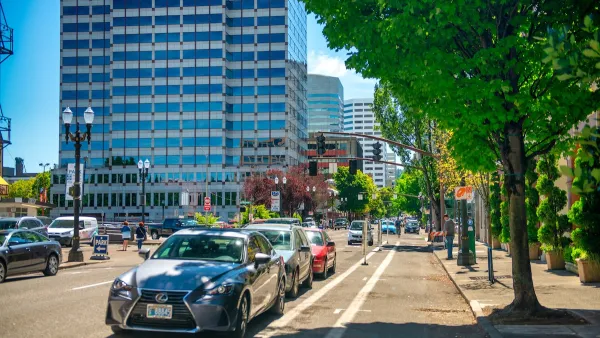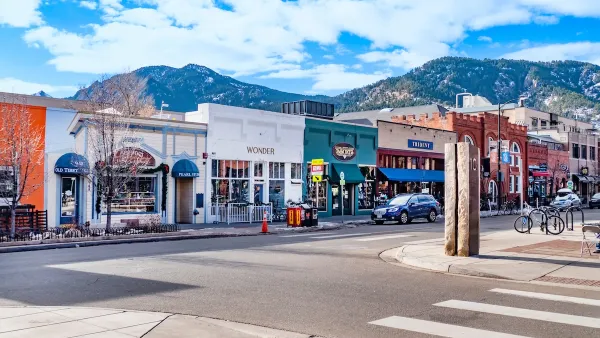Zoning codes that mandate a certain number of parking spaces for businesses that serve on-site alcoholic beverages are inconsistent with law enforcement's campaign against drunk driving, says Eric de Place.
The parking-to-floor area ratio in Vancouver, BC, is 1-to-60; Seattle and Portland, 1-to-250; and Boise, Ida., 1-to-300. With this ratio, "bars in Portland and Seattle are legally obligated to provide almost as much on-site parking as they set aside for customers," de Place points out.
He continues, "There's no better measure of our perverse relationship with cars than the fact that nearly every city and town in North America has laws requiring drinking establishments to provide parking, and yet roadside memorials to victims of drunk driving are mostly illegal."
De Place's solution? Make the existing requirement zero. "It's that easy," he says.
FULL STORY: Law and Order and Parking Lots

Maui's Vacation Rental Debate Turns Ugly
Verbal attacks, misinformation campaigns and fistfights plague a high-stakes debate to convert thousands of vacation rentals into long-term housing.

Planetizen Federal Action Tracker
A weekly monitor of how Trump’s orders and actions are impacting planners and planning in America.

In Urban Planning, AI Prompting Could be the New Design Thinking
Creativity has long been key to great urban design. What if we see AI as our new creative partner?

King County Supportive Housing Program Offers Hope for Unhoused Residents
The county is taking a ‘Housing First’ approach that prioritizes getting people into housing, then offering wraparound supportive services.

Researchers Use AI to Get Clearer Picture of US Housing
Analysts are using artificial intelligence to supercharge their research by allowing them to comb through data faster. Though these AI tools can be error prone, they save time and housing researchers are optimistic about the future.

Making Shared Micromobility More Inclusive
Cities and shared mobility system operators can do more to include people with disabilities in planning and operations, per a new report.
Urban Design for Planners 1: Software Tools
This six-course series explores essential urban design concepts using open source software and equips planners with the tools they need to participate fully in the urban design process.
Planning for Universal Design
Learn the tools for implementing Universal Design in planning regulations.
planning NEXT
Appalachian Highlands Housing Partners
Mpact (founded as Rail~Volution)
City of Camden Redevelopment Agency
City of Astoria
City of Portland
City of Laramie





























